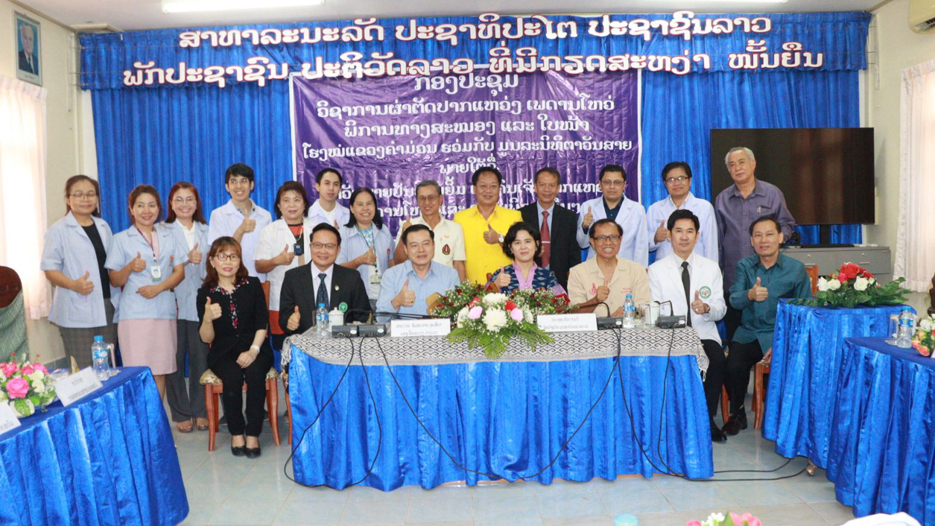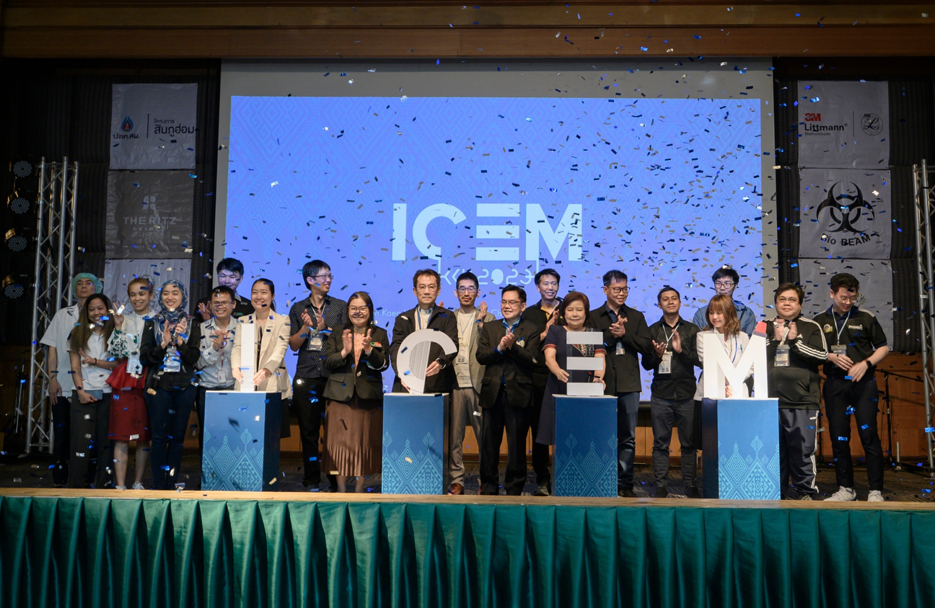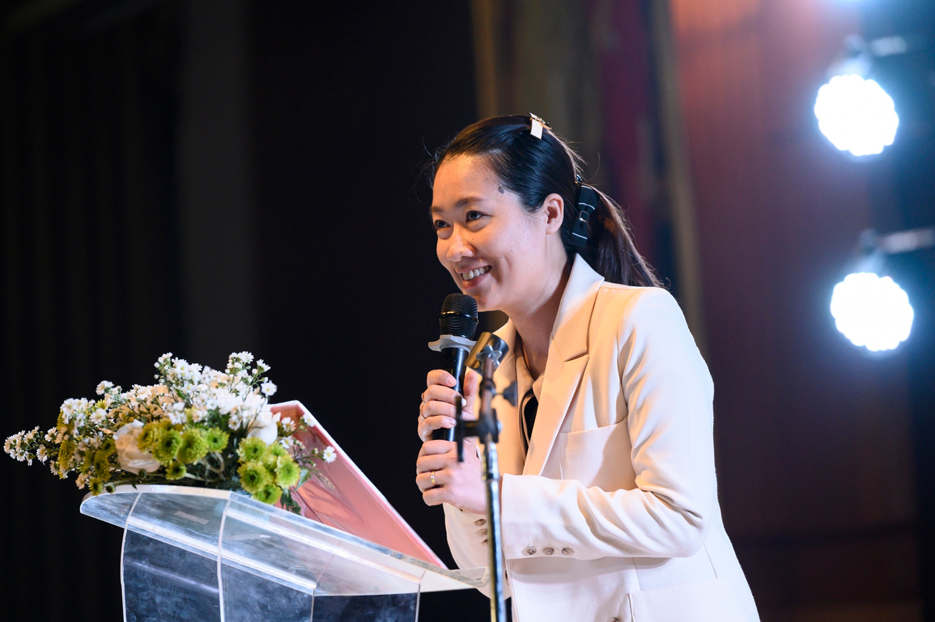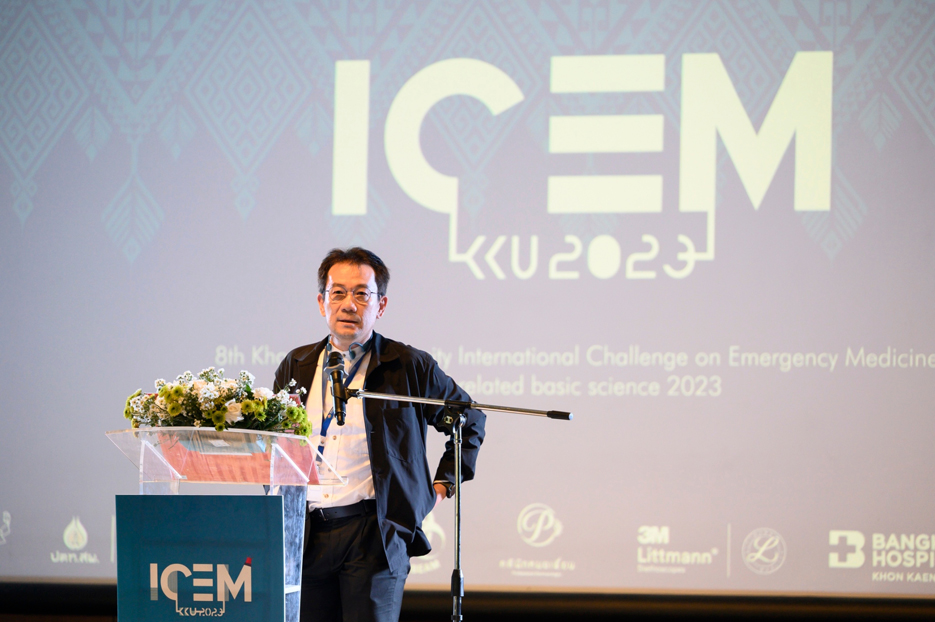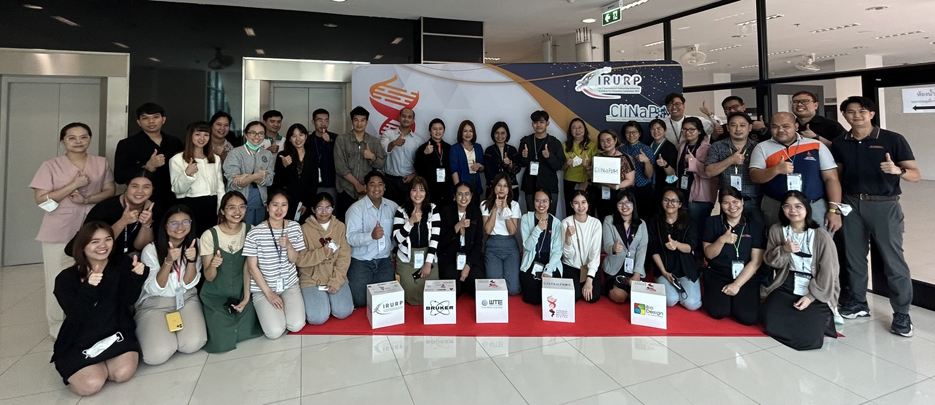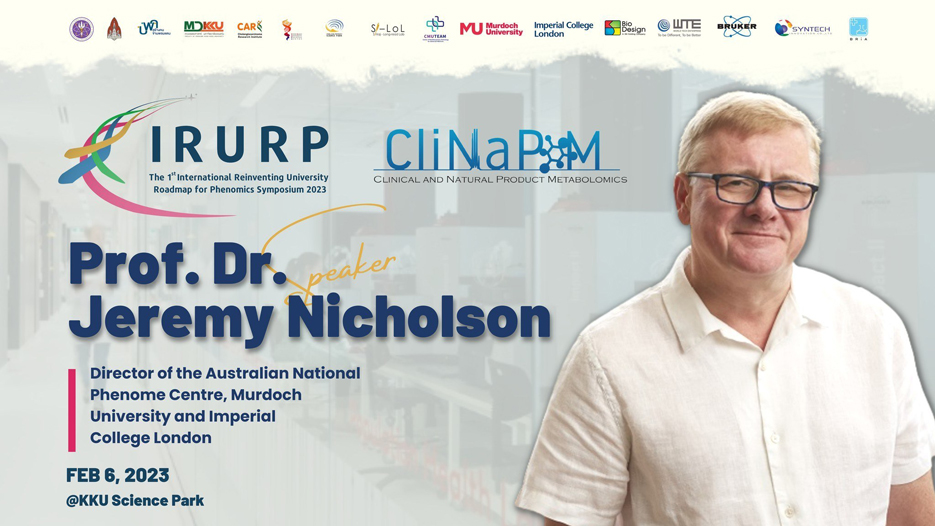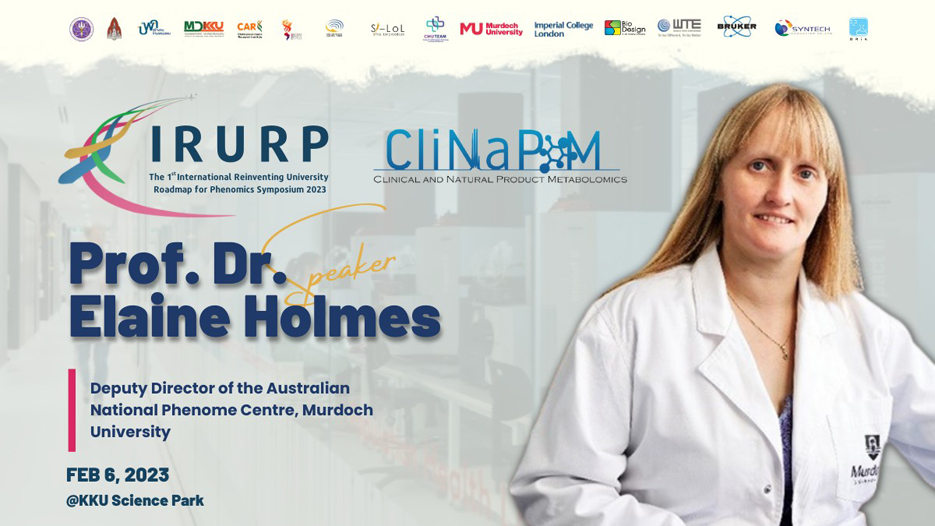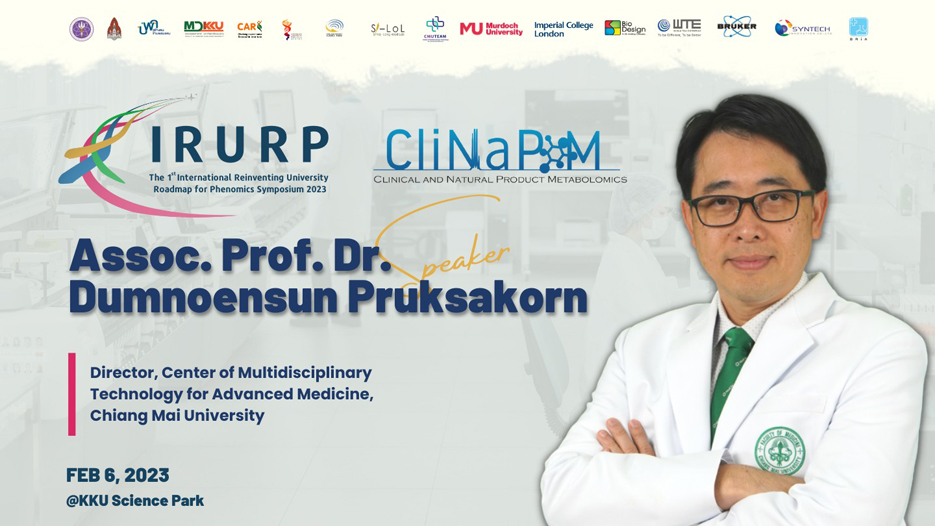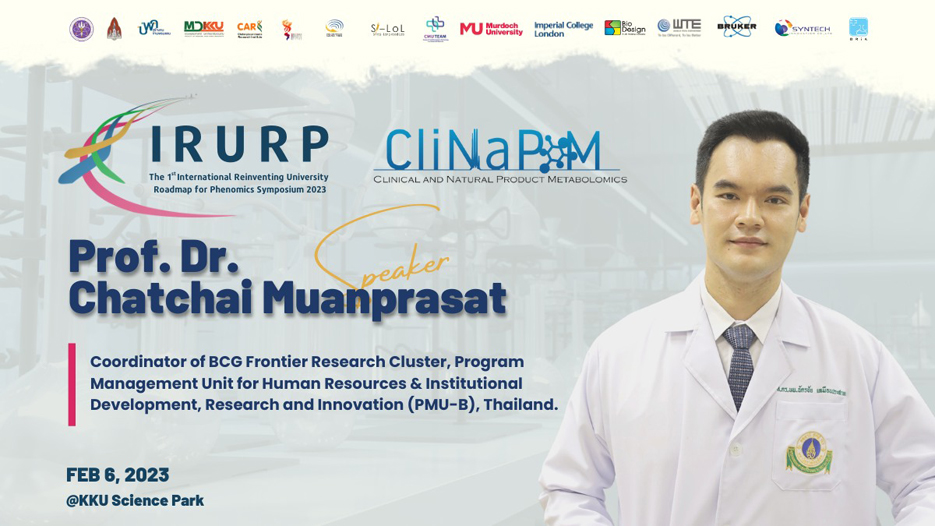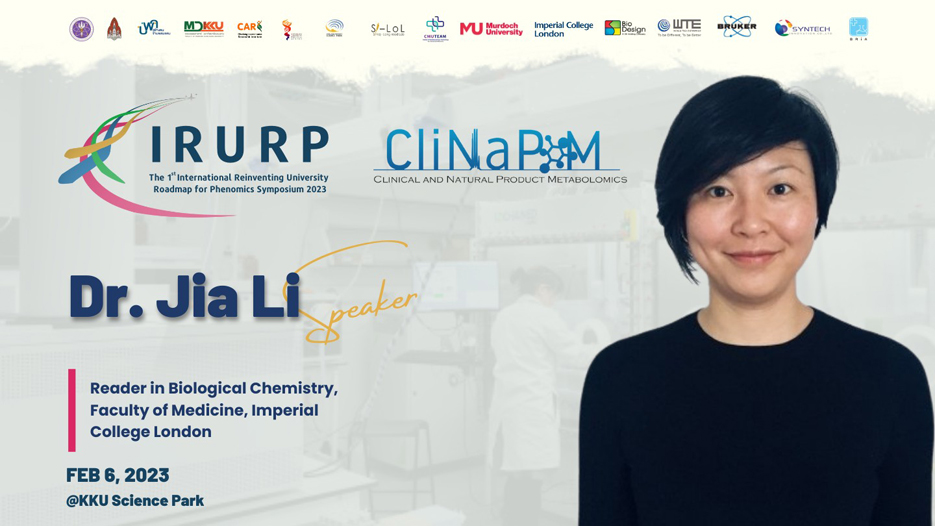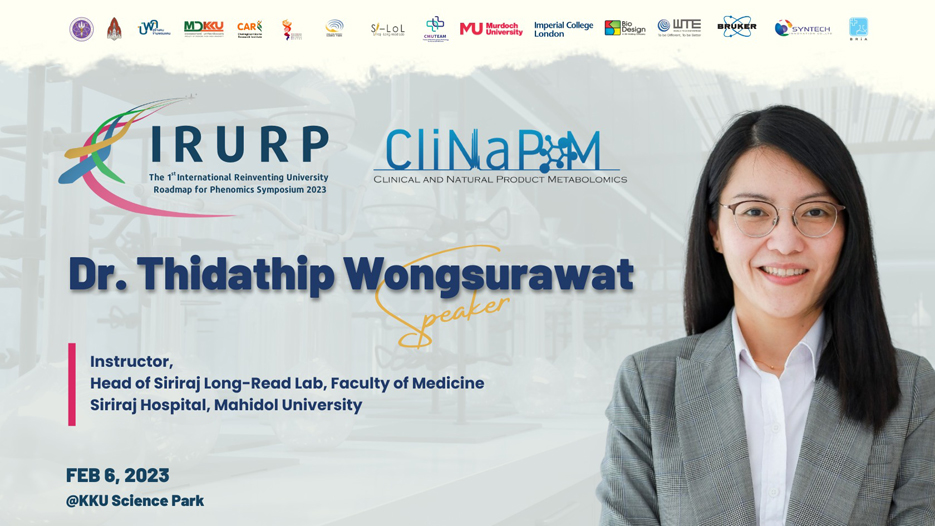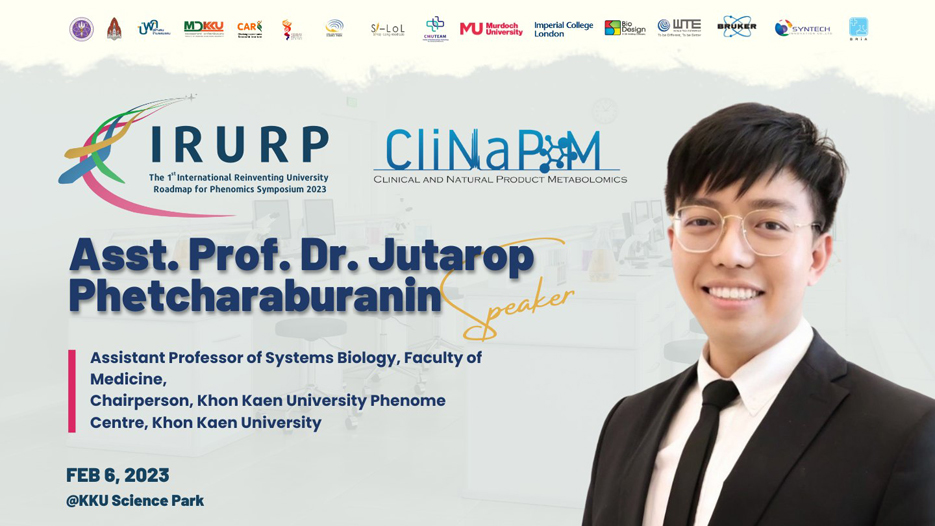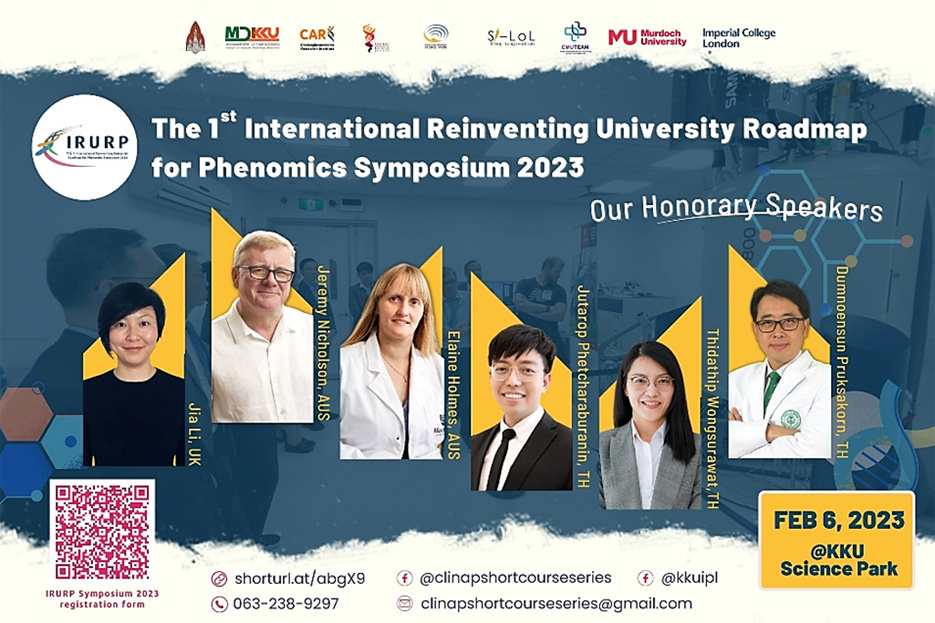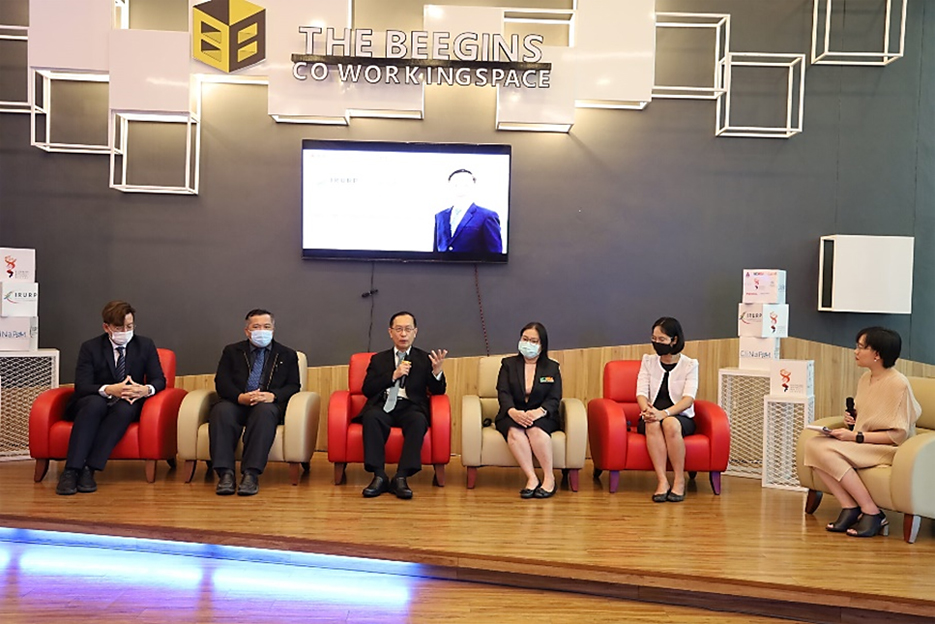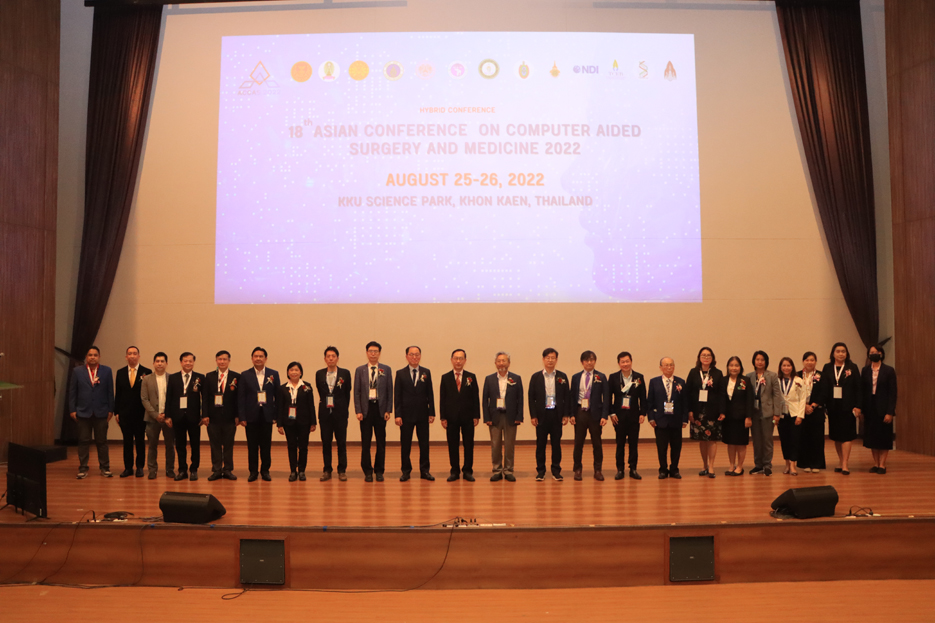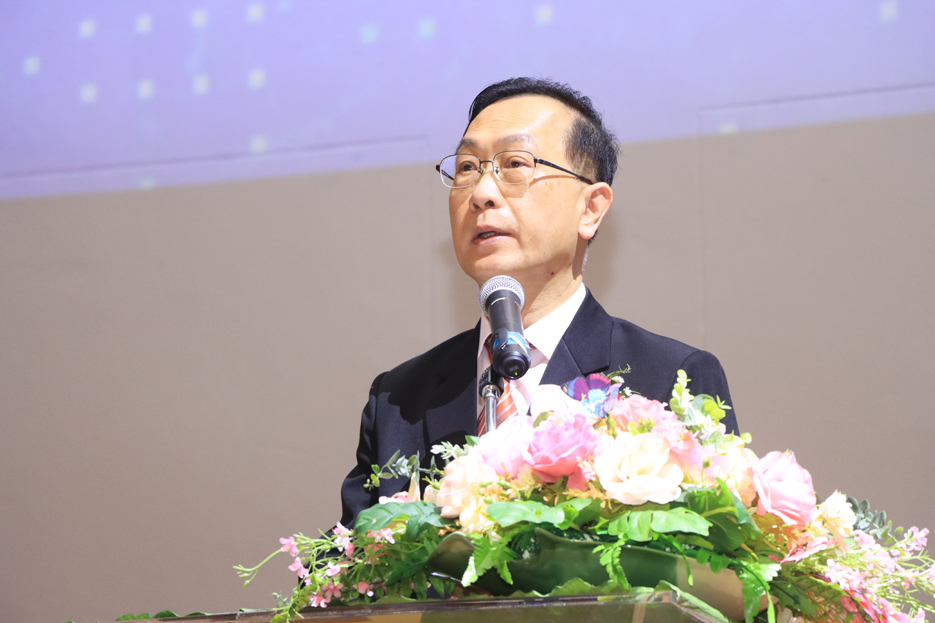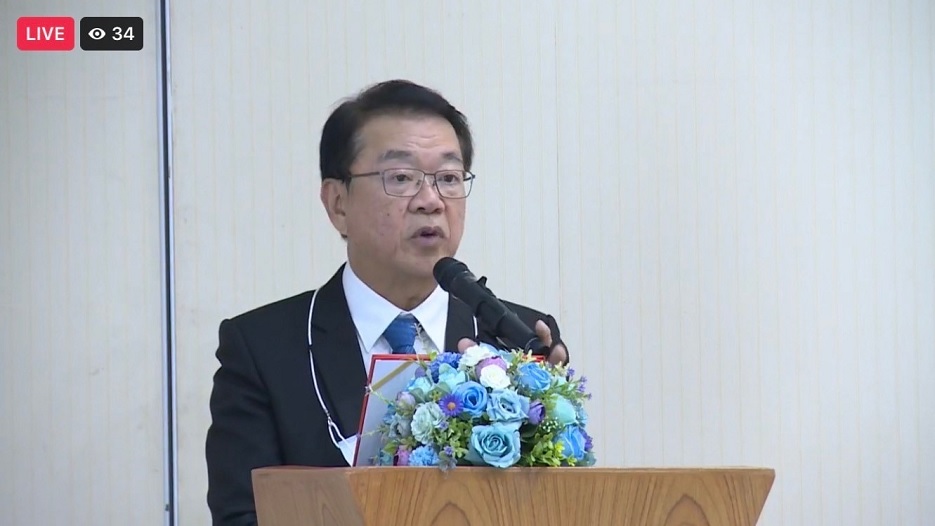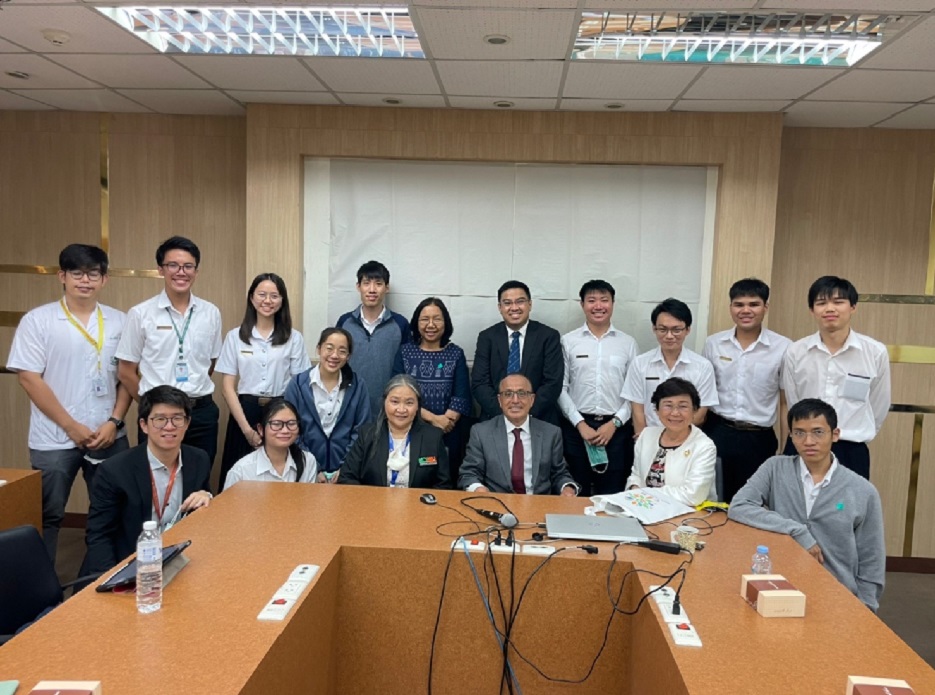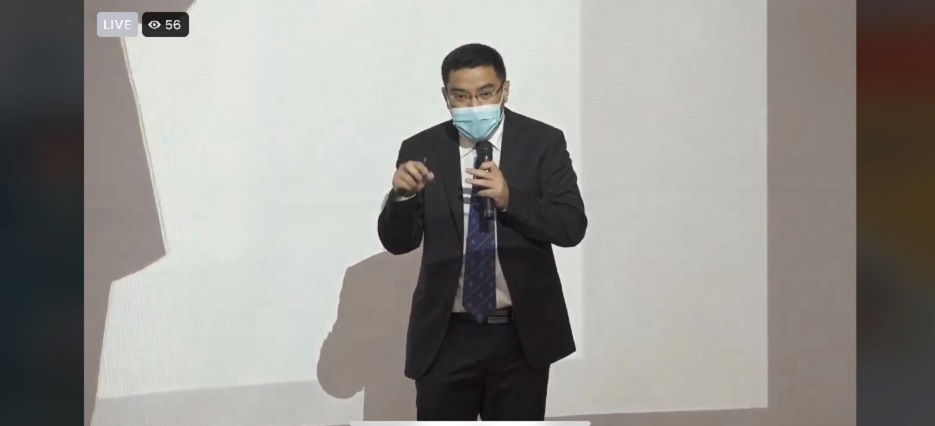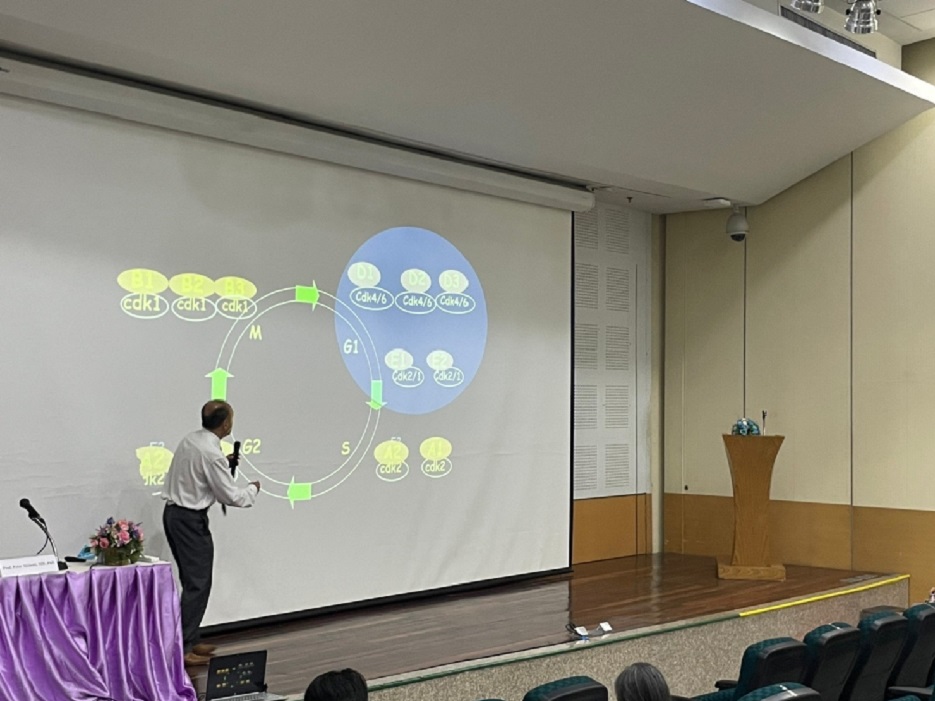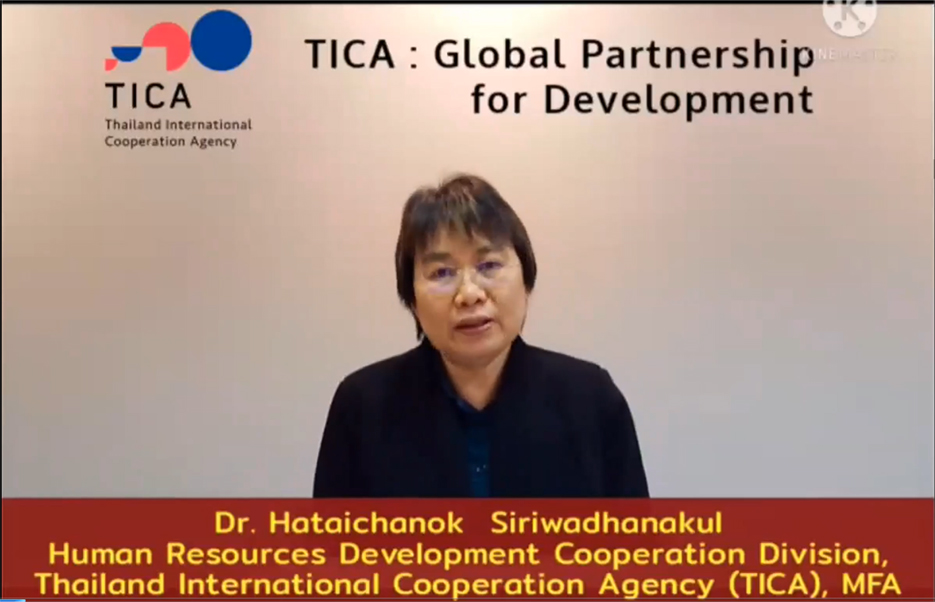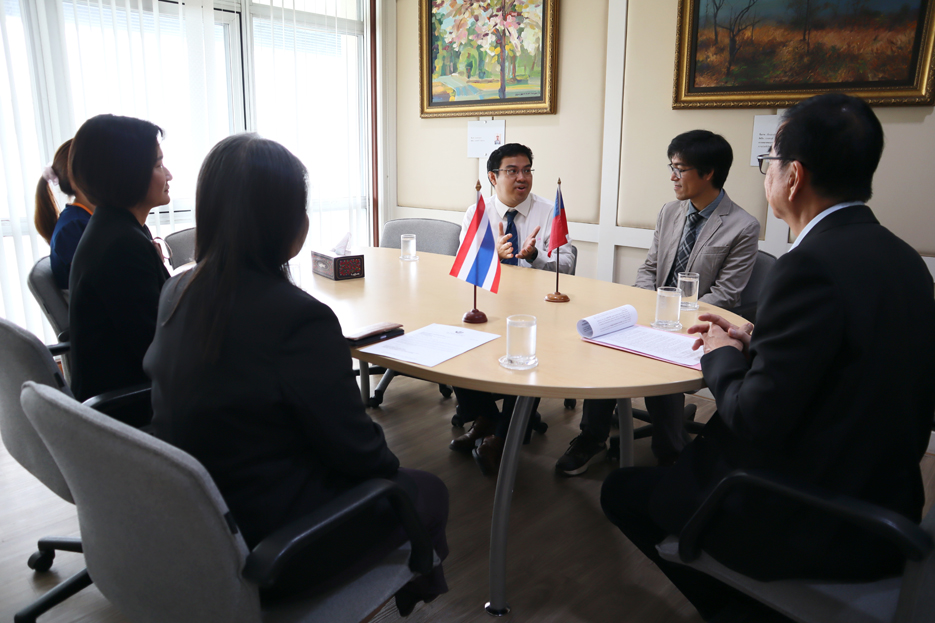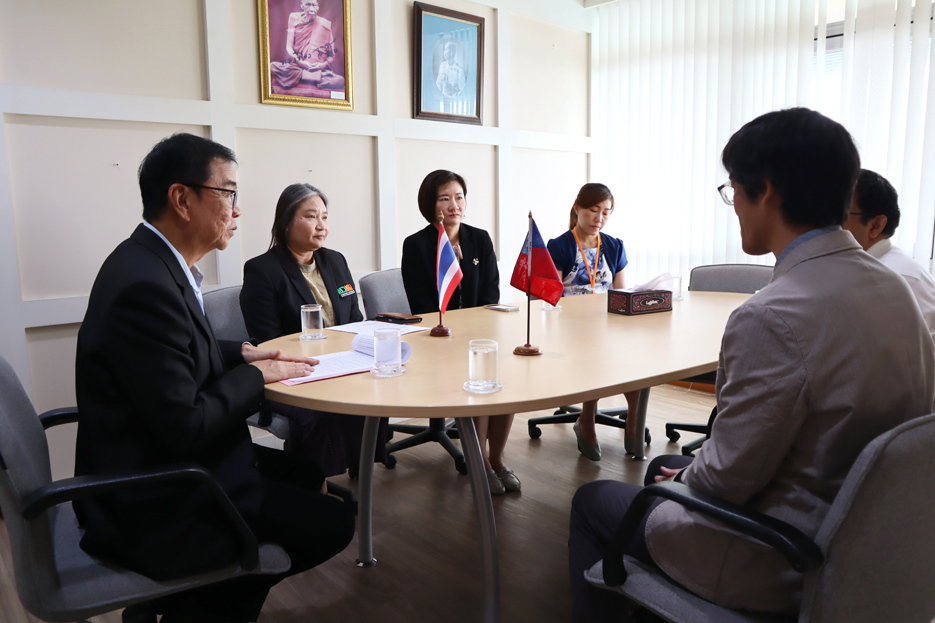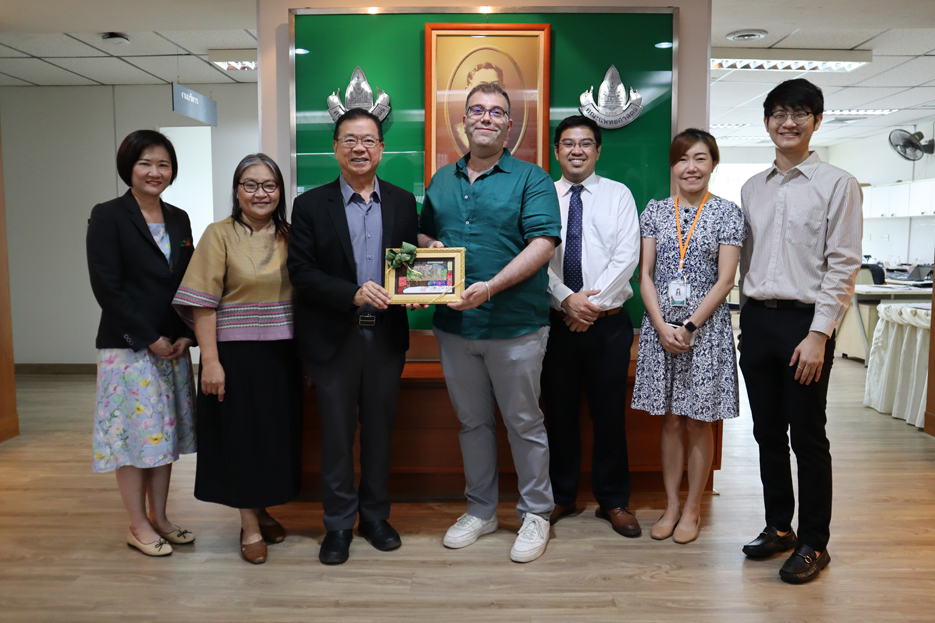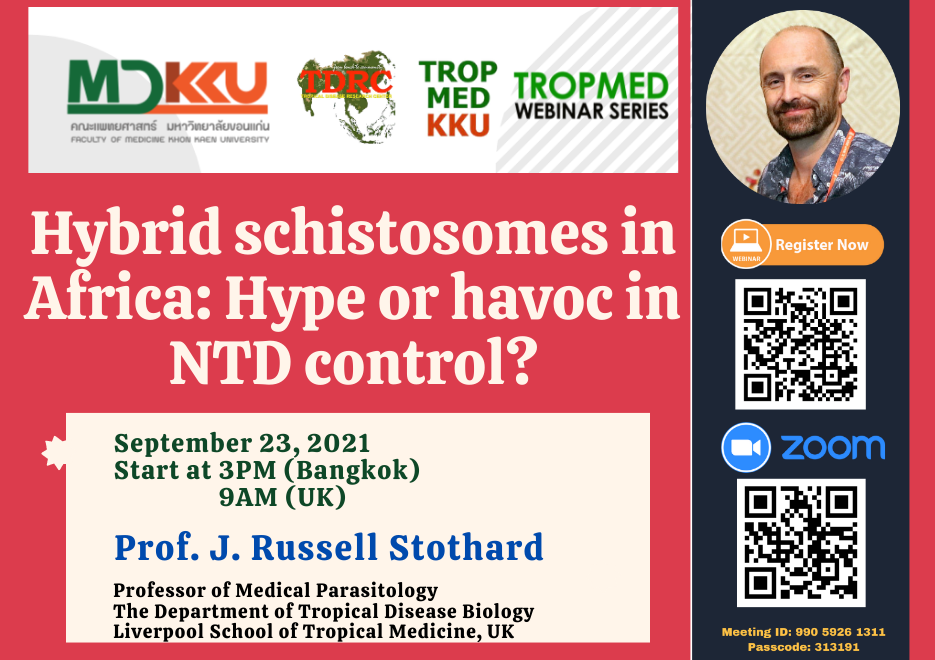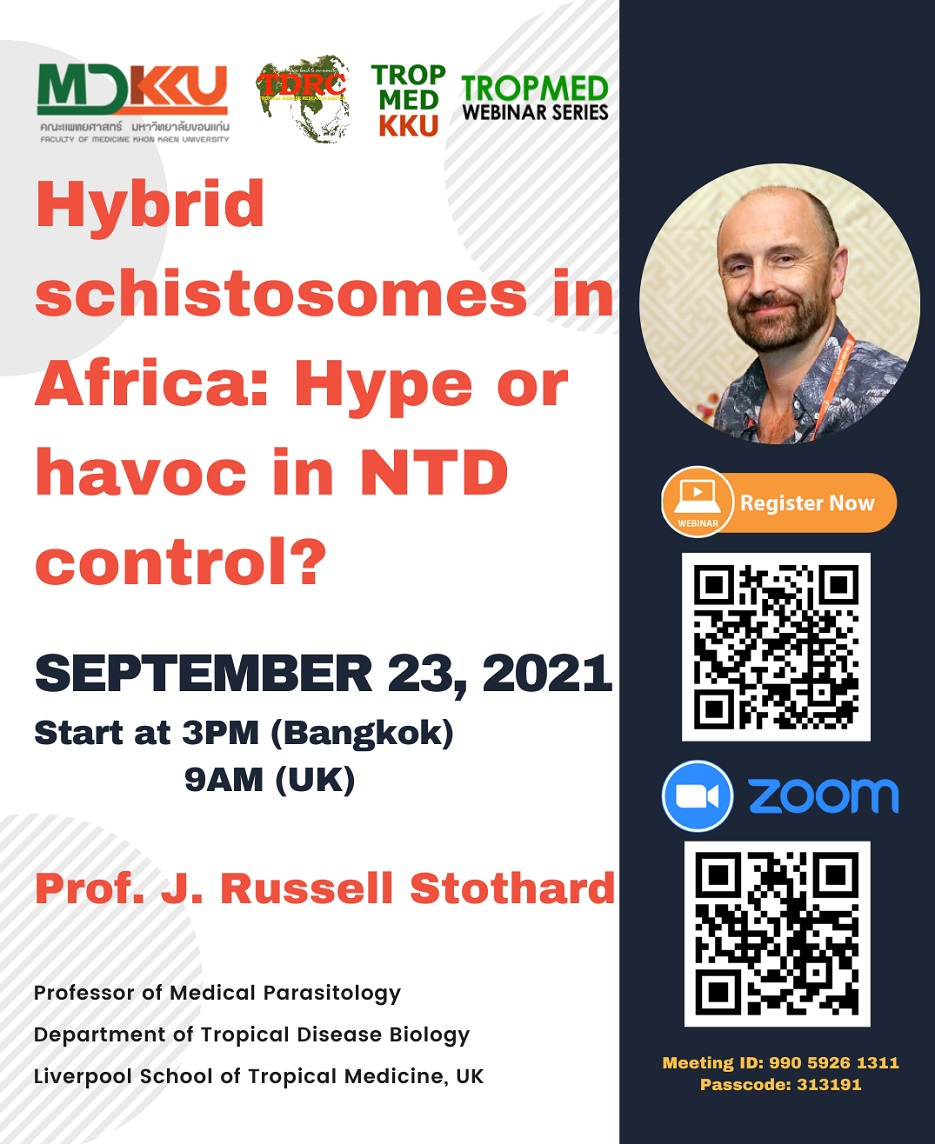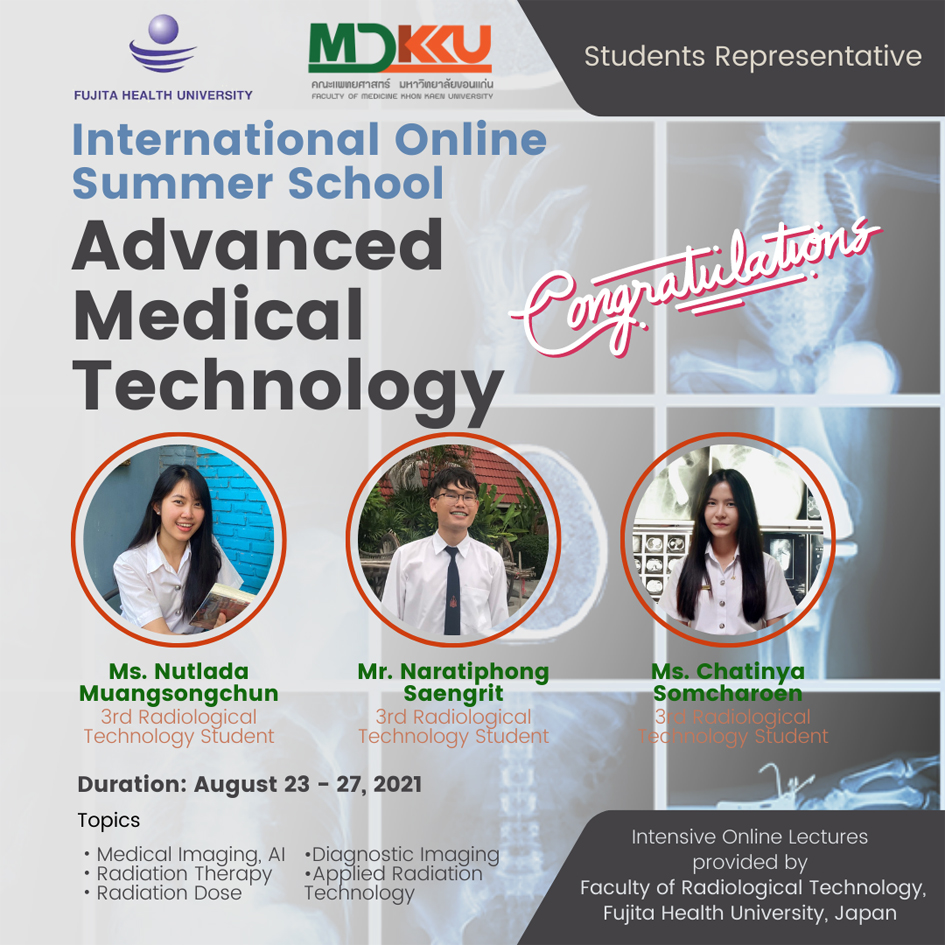
The Tropical Disease Research Center (TDRC), KKU recently hosted a three-day Workshop on Lawa Model: One Health in Action from May 31 to June 2, 2023 with the support of Chevron Corporation and the Southeast Asia One Health University Network (SEAOHUN). The course covered the principles of One Health, extensive examples of diseases and disaster, and explored the Lawa Model, with an optional short field visit to witness the Lawa Model in action.
The optional field visit and workshop were primarily arranged for professionals from health and related fields from ASEAN countries. The field visit’s objectives were to provide participants with on-site exposure to the Lawa Model as a One Health showcase, enabling them to receive practical experience and knowledge to apply to emerging health issues in their respective countries.
The Lawa Model has been recognized nationally and internationally as one of two showcase models for helminth control by WHO/NZD4. The Lawa Model, applying One Health approach, has been recommended for the control of foodborne trematode infections by WHO Western Pacific Region. For over a decade the Lawa community has been a training site for health professionals and researchers from Thailand and around the world to learn about One Health approach.

Associate Professor Apichat Jiravuttipong, Dean of the Faculty of Medicine
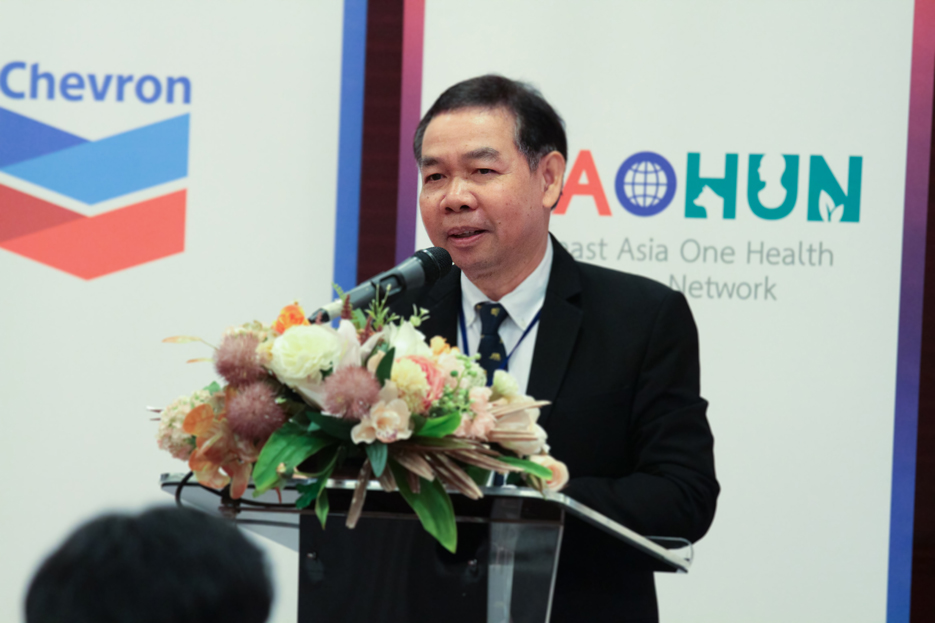
Professor Dr. Banchob Sripa, Director of KKU-TDRC
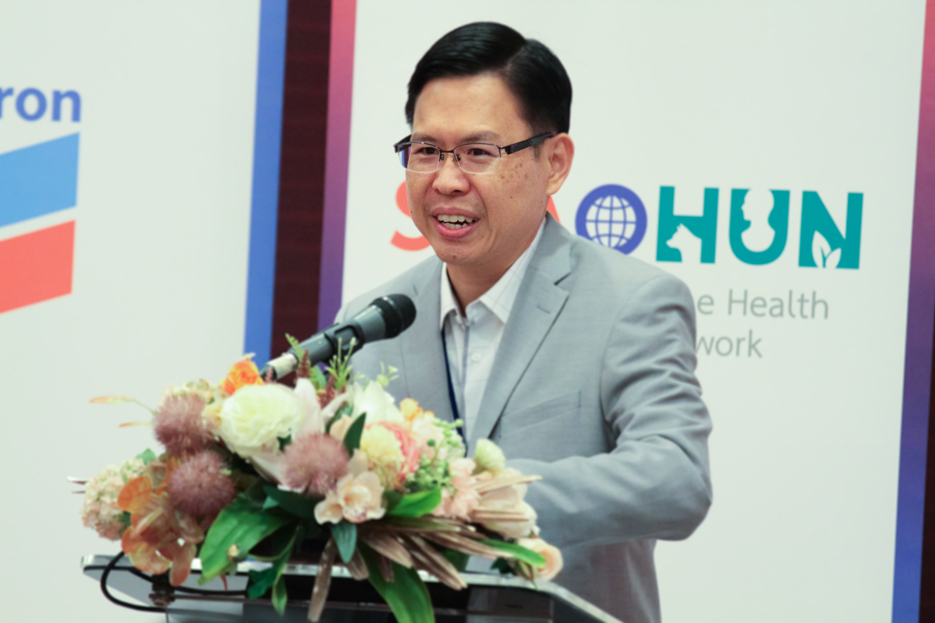
Dr. Vipat Kuruchittham, Executive Director of SEAOHUN
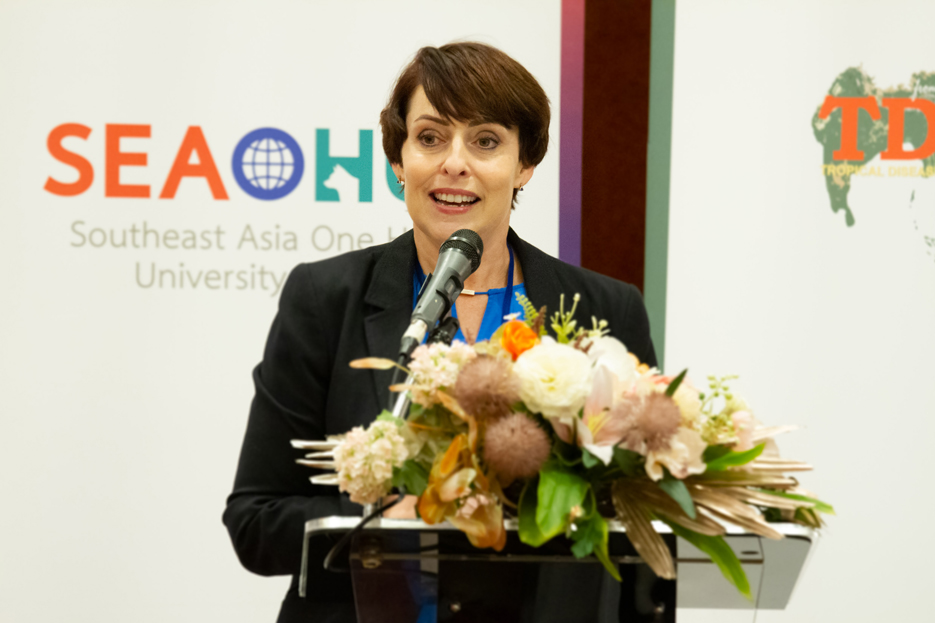
Ms. Dee Bourbon, Senior Social Investment Advisor of Chevron Corporation
The first day commenced with welcome and opening session by Professor Dr. Banchob Sripa, Director of Tropical Disease Research Center, who delivered the project report.
“The Tropical Disease Research Center or TDRC introduced a new control strategy for liver fluke infection using the One Health approach in the endemic Lawa Lake area of Khon Kaen Province,” said Professor Sripa.
“The program, now known as the Lawa Model, has gained national and international recognition and today we are pleased to have more than 35 participants taking part in the field trip workshop from SEAOHUN member countries including Cambodia, Indonesia, Malaysia, the Philippines, Thailand, and Vietnam, and two participants from India and Bangladesh.”
It was then a great honor for TDRC to invite Dr. Vipat Kuruchittham, Executive Director of SEAOHUN, and Ms. Dee Bourbon, Senior Social Investment Advisor of Chevron Corporation, important sponsors to deliver a speech to all participants.
Associate Professor Apichat Jiravuttipong, Dean of the Faculty of Medicine, presided over the opening ceremony and delivered the welcome and opening speech.
“Today we gather for the Lawa Model field trip, where qualified participants will witness the Model in action,” said the KKU-MD president.
“Through this immersive experience, you will gain practical knowledge to address emerging health challenges in your own countries, I believe.”
On the opening day, all participants were introduced to the project background information and orientation for the field trip by Professor Sripa. They were also provided with ice-breaking activities and allowed to join group discussion sharing experiences and discuss community health problems in their countries to create lessons learned from each group.
Day 1: Sharing One Health experiences and discussing current community health problems
On the second day, participants observed the Lawa Model in practice at the Lawa Lake community. They firstly had a meeting at Lawa Health Promoting Hospital on an overview of liver flukes and Lawa Model, waste management, and demonstration of Lawa Model. The next visit was at Banlawa School to observe a demonstration of liver fluke-free school and then to Lawa households to observe local fermented fish production.
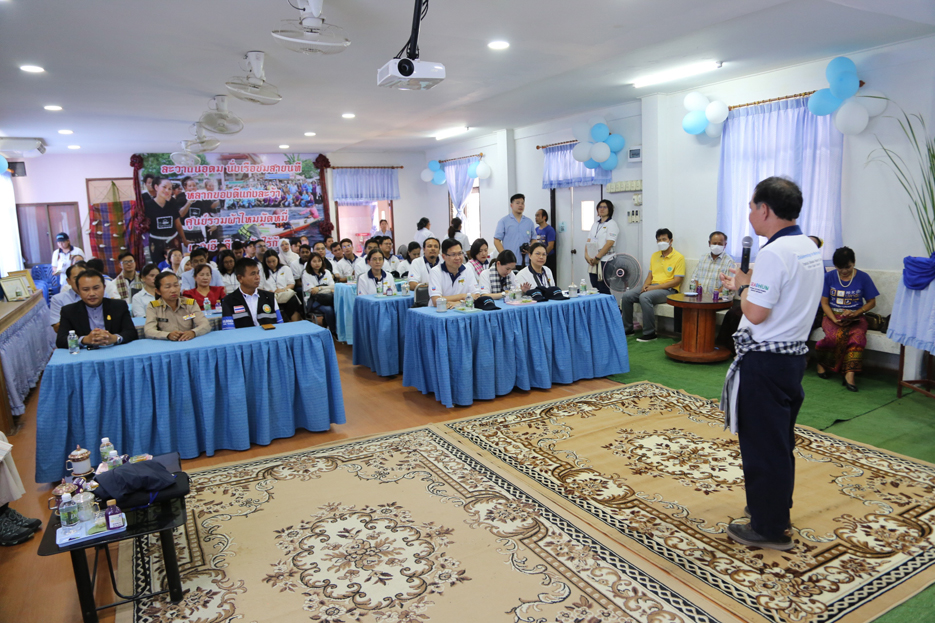
Meeting at Lawa Health Promoting Hospital
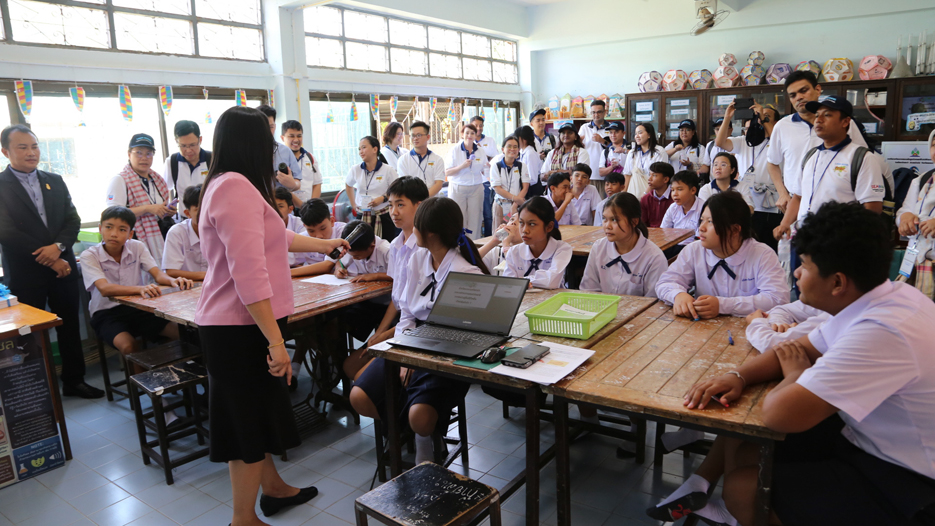
A demonstration of liver fluke-free school
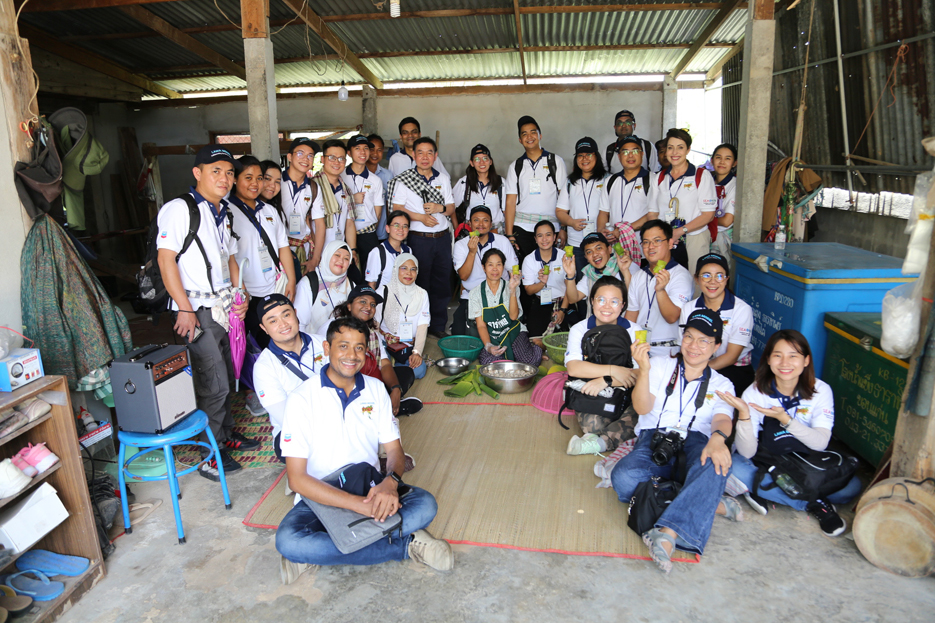
Observing local fermented fish production
Next Dr. Sirikachorn Tangkawattana led all participants to visit animal and environmental health sites. The TDRC team demonstrated proper pet healthcare and animal restraint. Then they moved to an environmental modification area at Don Pordaeng Village, the final station of the field trip. They visited a lake site where a road was constructed to reduce the population of Bithynia snails, and they also observed Lawa fishermen catching fish from the lake.
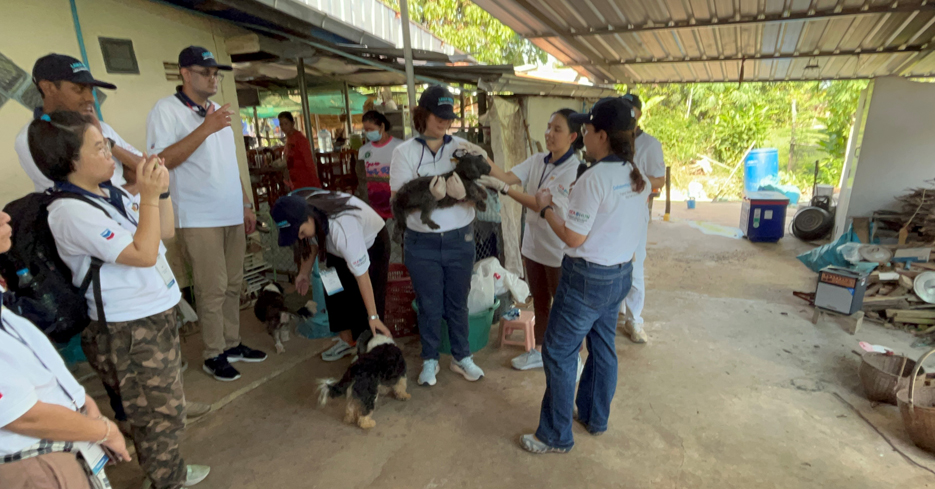
A demonstration of pet healthcare
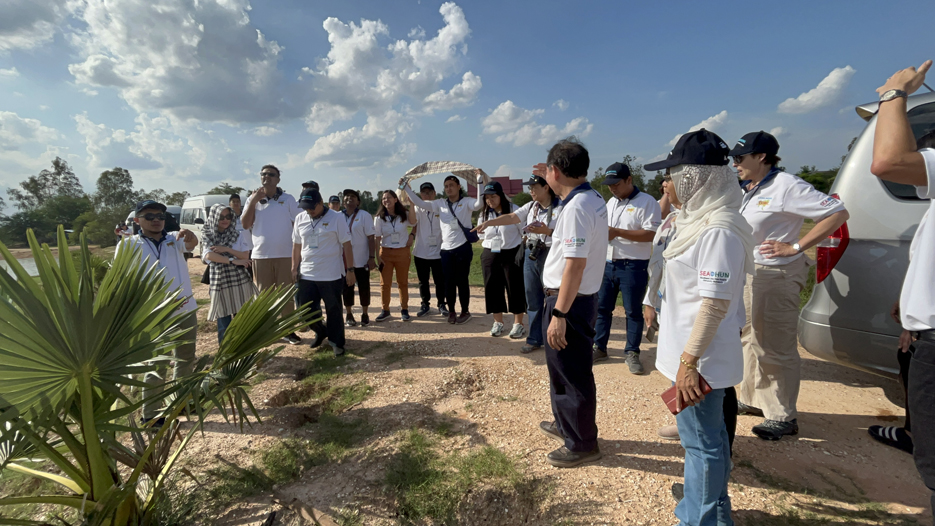
Visiting an environmental modification area at Don Pordaeng Village
The third day involved debrief and course wrap-up and reflection. The participants reported back on their experiences and learnings they were able to apply to health problem solving through final group presentations.
Day 3: Debrief and wrap-up and course reflection
We hope all participants increased their One Health concept knowledge and will successfully integrate it into community health solutions in their own countries.
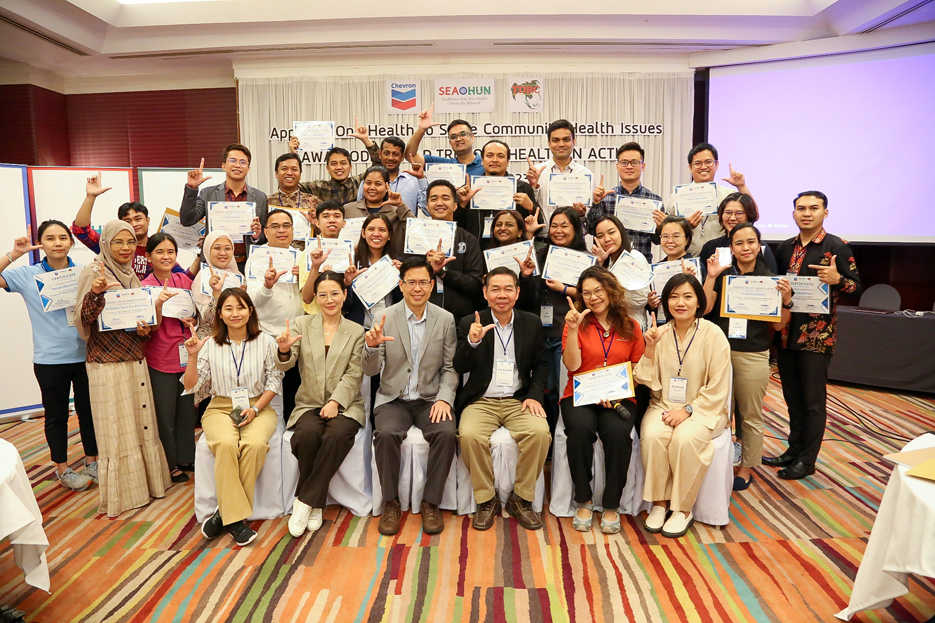
Reporting by Sathaphorn Onlamun
Editing by Prof. John F Smith

